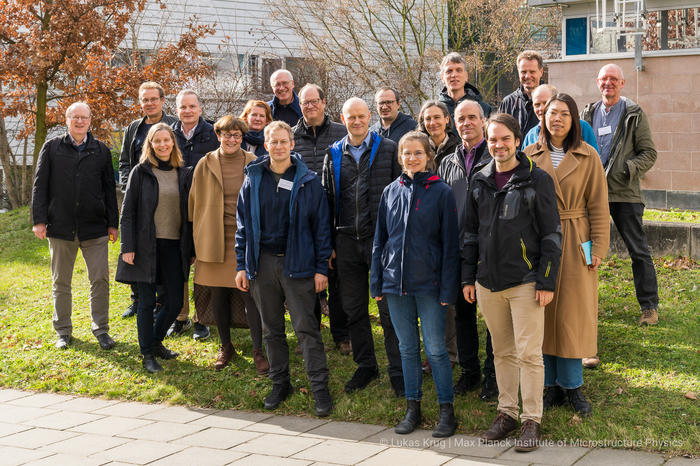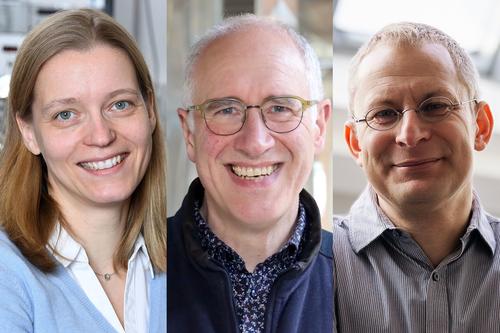Center for Chiral Electronics (CCE)
Electronics for a sustainable future
The rapidly increasing global energy consumption driven by artificial intelligence (AI) and cloud computing calls for new technologies. With the ambitious goal of developing new concepts for more efficient ultrafast electronics, the Cluster of Excellence Center for Chiral Electronics (CCE) — a collaboration between Martin Luther University, the Max Planck Institute of Microstructure Physics in Halle, Freie Universität Berlin, and the University of Regensburg — aims to counter the rise in energy demand caused by emerging technologies such as AI and cloud computing in a long-term and sustainable way.
In their search for solutions for energy-efficient electronics, the CCE research team has taken inspiration from nature: chirality refers to the property of an object that makes it impossible to superimpose it onto its mirror image through rotation and translation. This characteristic gives many natural objects a special stability against external disturbances. While chirality has so far played little role in electronics, the CCE team now seeks to develop new chiral materials for ultrafast and low-loss electronic devices.
Left to right: Katharina Franke (Freie Universität Berlin), Christoph Strunk (Universität Regensburg) and Georg Woltersdorf (Martin-Luther-Universität Halle-Wittenberg)
Image Credit: Left to right: David Ausserhofer, Katharina Herkommer, Lukas Krug
"In order to significantly and sustainably reduce global energy consumption in information processing, more efficient electronics are essential. The Center for Chiral Electronics is laying the scientific foundations to achieve this."
Prof. Dr. Katharina Franke, Co-spokesperson Center for Chiral Electronics, Freie Universität Berlin
The Cluster of Excellence CCE is a joint project of Martin Luther University and the Max Planck Institute of Microstructure Physics in Halle, Freie Universität Berlin, and the University of Regensburg. CCE promotes collaboration in cutting-edge research in solid-state physics and offers promising opportunities for technology transfer. The cluster will train highly qualified physicists capable of making significant technological contributions toward Europe’s goal of achieving independence in the semiconductor industry. In addition, the CCE team plans to collaborate with education researchers to develop new concepts for sparking students’ interest in the natural sciences and attracting young talent.
Spokespersons: Prof. Dr. Georg Woltersdorf (Martin Luther University Halle-Wittenberg), Prof. Dr. Katharina Franke (Freie Universität Berlin), Prof. Dr. Christoph Strunk (University of Regensburg)
Applicant universities: Martin Luther University Halle-Wittenberg, Freie Universität of Berlin, University of Regensburg
Partner institutions: Max Planck Institute for Microstructure Physics Halle, Technical University of Dortmund


